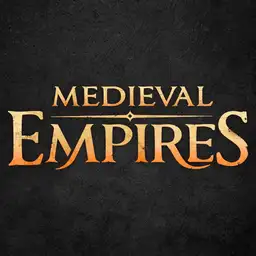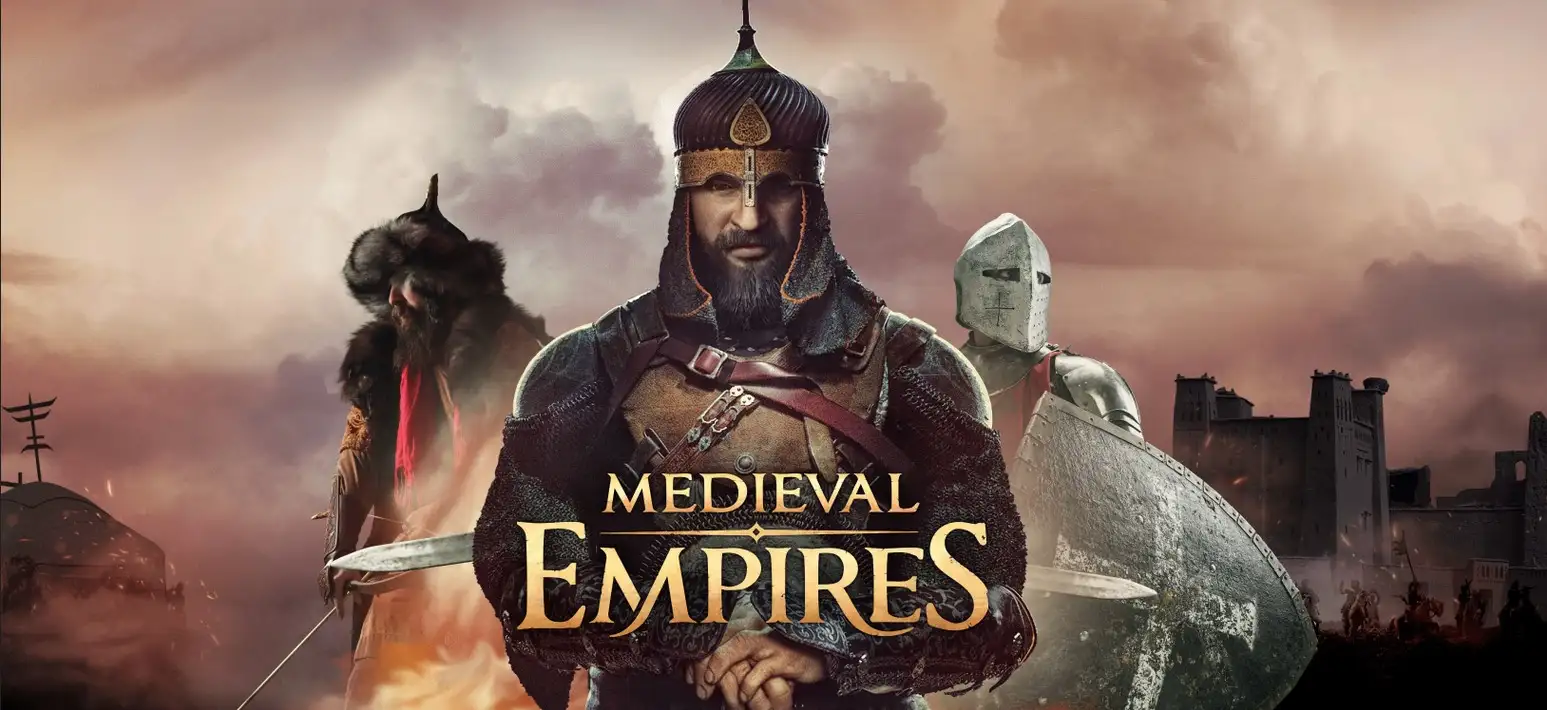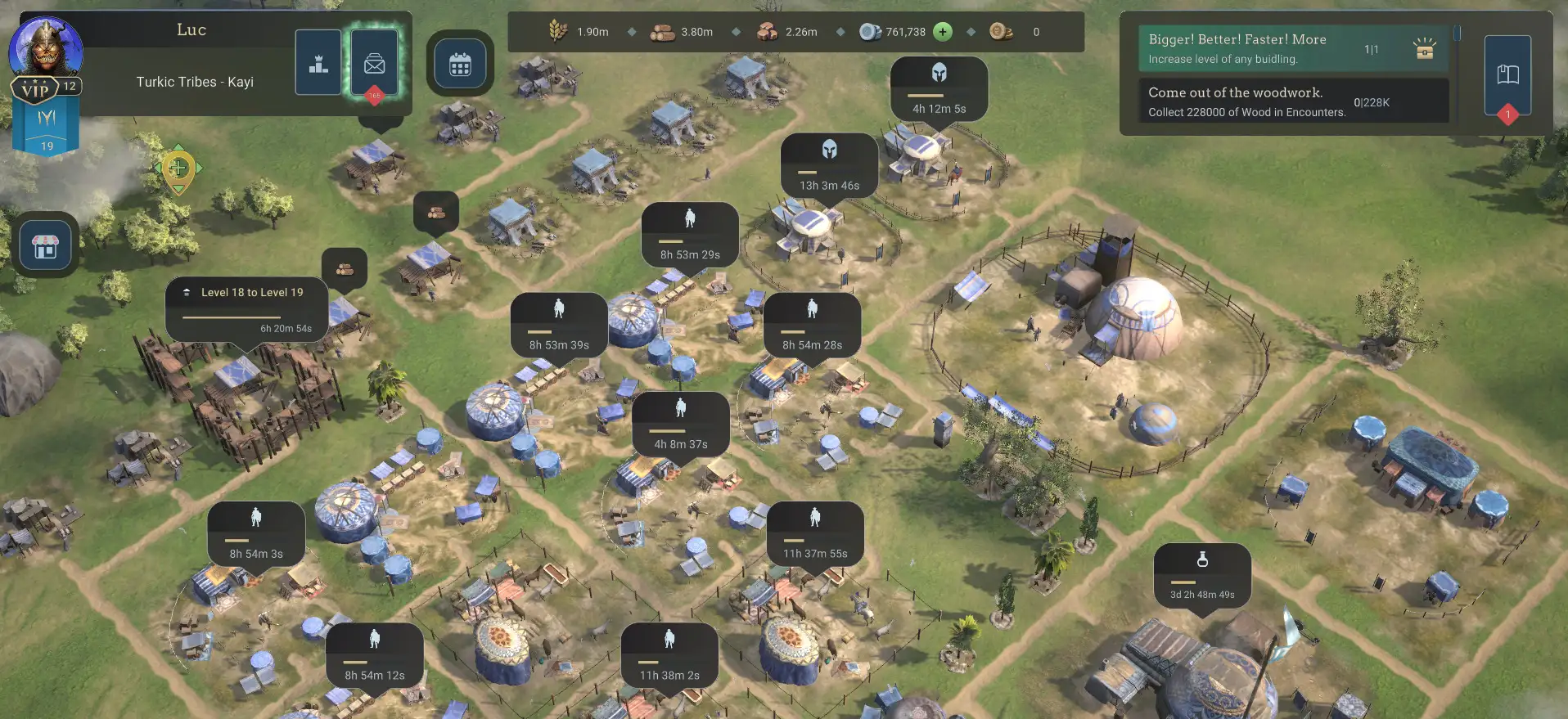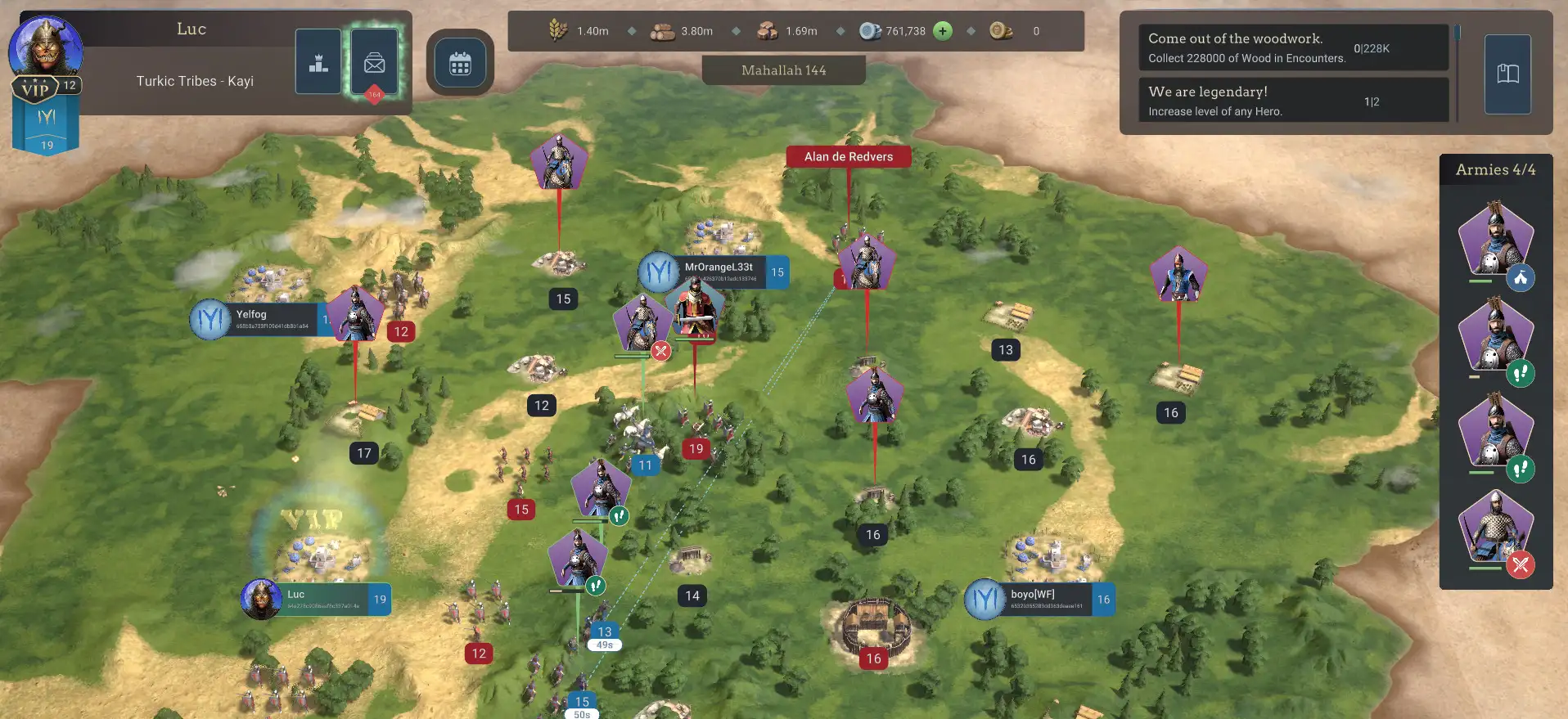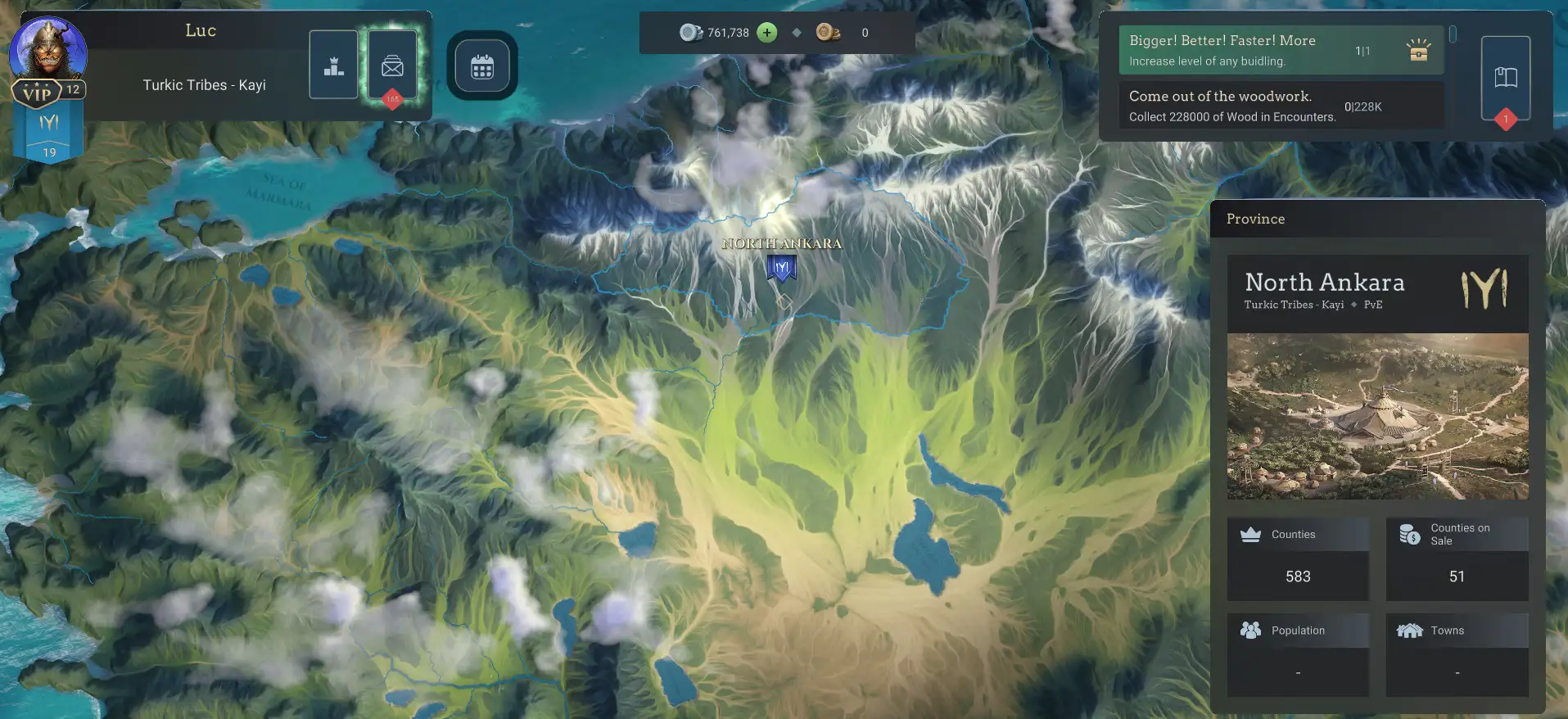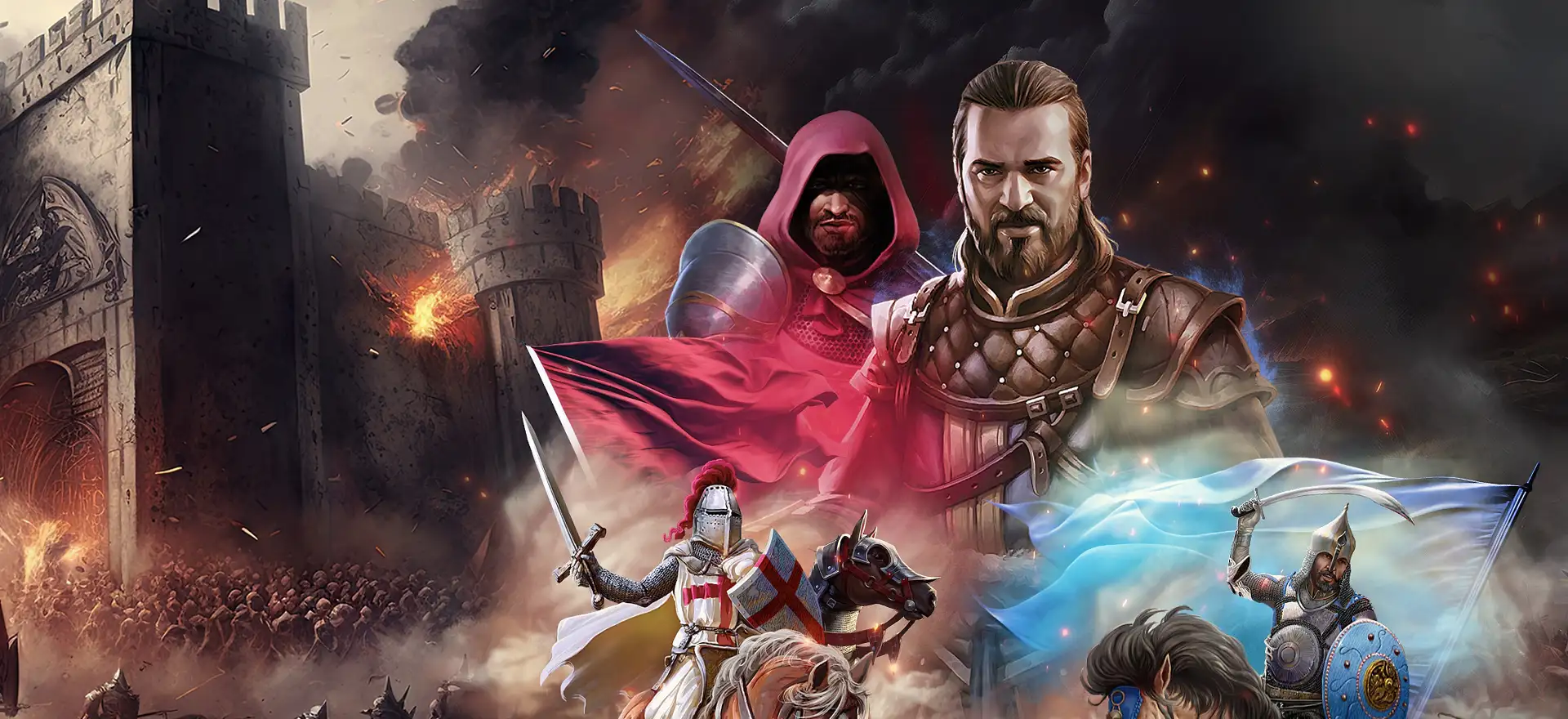About Medieval Empires
Medieval Empires is a groundbreaking strategy game set in the turbulent 13th century, where players are immersed in the world of empires, conquests, and battles. The game offers a unique blend of traditional strategy gameplay with modern blockchain technology, allowing players to own, trade, and earn through a decentralized economy. Set against the backdrop of the rise of the Ottoman Empire, the game invites players to build their empires, forge alliances, and engage in epic battles to expand their territories.
At its core, Medieval Empires is a play-to-earn game that leverages the power of blockchain to offer a transparent and secure gaming experience. Players can earn rewards through their in-game activities, which are represented as NFTs and can be traded or sold on various platforms. The game’s economy is driven by the MEE token, which serves as the primary currency for all transactions within the game.
What sets Medieval Empires apart is its historical setting and narrative depth. The game is not just about battles and conquests; it also delves into the political and cultural aspects of the 13th century, offering players a rich and immersive experience. The game’s world is meticulously crafted, with attention to historical details that bring the era to life.
Medieval Empires is a unique addition to the world of blockchain gaming, offering a deep and historically rich strategy game set in the 13th century. The game allows players to immerse themselves in the period of the Ottoman Empire's rise, providing a backdrop of epic battles, political intrigue, and strategic conquests. Unlike many other blockchain games, Medieval Empires focuses on creating an authentic and immersive experience by incorporating historically accurate details and characters.
The game’s economy is powered by the MEE token, which serves as the primary currency for all in-game transactions. Players can purchase NFTs, representing various in-game assets such as land, units, and buildings, with the MEE token. These NFTs are not only collectibles but also functional assets that players can use to enhance their gameplay. The game integrates a play-to-earn model, allowing players to earn MEE tokens through their in-game activities, which they can trade or use within the game’s economy.
One of the key aspects of Medieval Empires is its decentralized governance model. Players who hold MEE tokens can participate in important game decisions through a voting system, influencing the direction of the game’s development. This decentralized approach ensures that the game evolves according to the community's preferences, making it a truly player-driven experience.
The game also sets itself apart from competitors like Mirandus and Age of Rust by focusing heavily on historical accuracy and narrative depth. While other blockchain games may offer similar play-to-earn models, Medieval Empires distinguishes itself with its attention to historical detail and the integration of real-world history into its gameplay. The game’s roadmap includes plans for additional content, new factions, and expanded gameplay mechanics, promising continuous updates and a growing universe.
Medieval Empires offers a complex and engaging gameplay experience that revolves around building and expanding your empire. Players begin by selecting a faction, each with unique abilities and units, and then proceed to manage resources, construct buildings, and train armies. The game’s strategic depth is evident in the variety of choices available to players, from diplomatic alliances to direct military confrontations. The game features both PvP (Player versus Player) and PvE (Player versus Environment) modes, allowing players to compete against others or challenge the game’s AI in various scenarios.
One of the core gameplay elements is the use of NFTs, which represent different in-game assets. These NFTs can be bought, sold, and traded, giving players true ownership of their in-game items. The MEE token is central to these transactions, enabling players to use their earnings to enhance their gameplay by acquiring more powerful units, upgrading their buildings, or expanding their territory. The game also incorporates a robust staking mechanism, allowing players to stake their tokens for additional rewards and influence over game governance.
The historical setting of Medieval Empires adds another layer of immersion, as players navigate the complexities of medieval politics and warfare. The game’s detailed environment and accurate representation of the 13th century make it a standout in the blockchain gaming space. Additionally, the game’s roadmap promises ongoing content updates, ensuring that the gameplay remains fresh and engaging over time.
To start playing Medieval Empires, follow these steps:
- Sign Up: Visit the official Medieval Empires website and create an account.
- Set Up a Wallet: Ensure you have a compatible crypto wallet like MetaMask. Fund your wallet with MEE tokens, which you will use for in-game transactions.
- Purchase NFTs: Explore the in-game marketplace to purchase NFTs that represent various in-game assets such as land, units, and buildings. These NFTs will help you build and expand your empire.
- Select Your Faction: Choose a faction to align with. Each faction has unique units and abilities, so select the one that best matches your strategic preferences.
- Start Building: Use your NFTs and resources to start constructing buildings, training armies, and managing your empire. Engage in PvP or PvE battles to expand your territory.
- Participate in Governance: Use your MEE tokens to vote on important game decisions and influence the development of Medieval Empires.
- Earn and Trade: Earn MEE tokens through gameplay and trade them on exchanges or use them within the game to acquire more assets and upgrades.
For more detailed instructions and to stay updated on the latest developments, visit the Medieval Empires website.
Medieval Empires Token
Medieval Empires Reviews by Real Users
Medieval Empires FAQ
At Medieval Empires, we collaborate with historians and subject matter experts to ensure that the game’s settings, characters, and events align closely with the historical context of the 13th century. This attention to detail provides players with an immersive experience that is both educational and engaging.
In Medieval Empires, NFTs represent in-game assets such as land, units, and buildings. These NFTs grant players true ownership, allowing them to trade, sell, or upgrade their assets. This unique integration of NFTs enhances strategic depth, offering players a tangible stake in their in-game achievements.
Yes, Medieval Empires operates under a decentralized governance model. Players holding MEE tokens can vote on critical decisions, from new game features to content updates. This ensures that the game evolves in line with the community's preferences, making it a player-driven experience. Learn more at Medieval Empires.
The MEE token is at the heart of the Medieval Empires economy, facilitating all in-game transactions. From purchasing NFTs to upgrading assets, the token drives a dynamic economy where players can earn and trade their way to success. The game’s economy is carefully balanced to ensure long-term sustainability and player satisfaction.
The 13th-century setting of Medieval Empires is more than just a backdrop; it shapes the entire gameplay experience. Players engage in battles, diplomacy, and empire-building within the context of historical events and cultures, providing a rich, immersive environment where every decision reflects the realities of the time.
You Might Also Like









